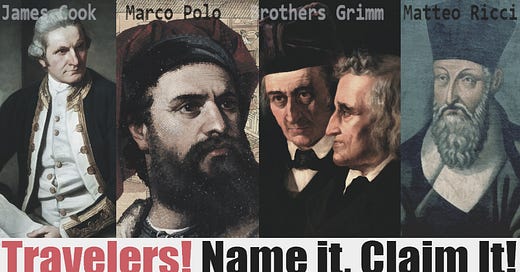The travelers are the heralds, discoverers, and imperialists on the planet that is the Human Farm.
They are also the orators of great adventures, insofar as they are—not quite literally sailing a boat yet but imaginatively exploring the shores of distant continents from behind their desks—graduating to the Name-it-Claim-it-University of sheer will, conquest, and subterfuge.
[But really, most travel writers really only engage in confabulating the most exotic and wildest texts about who discovered her and named it which way.]






